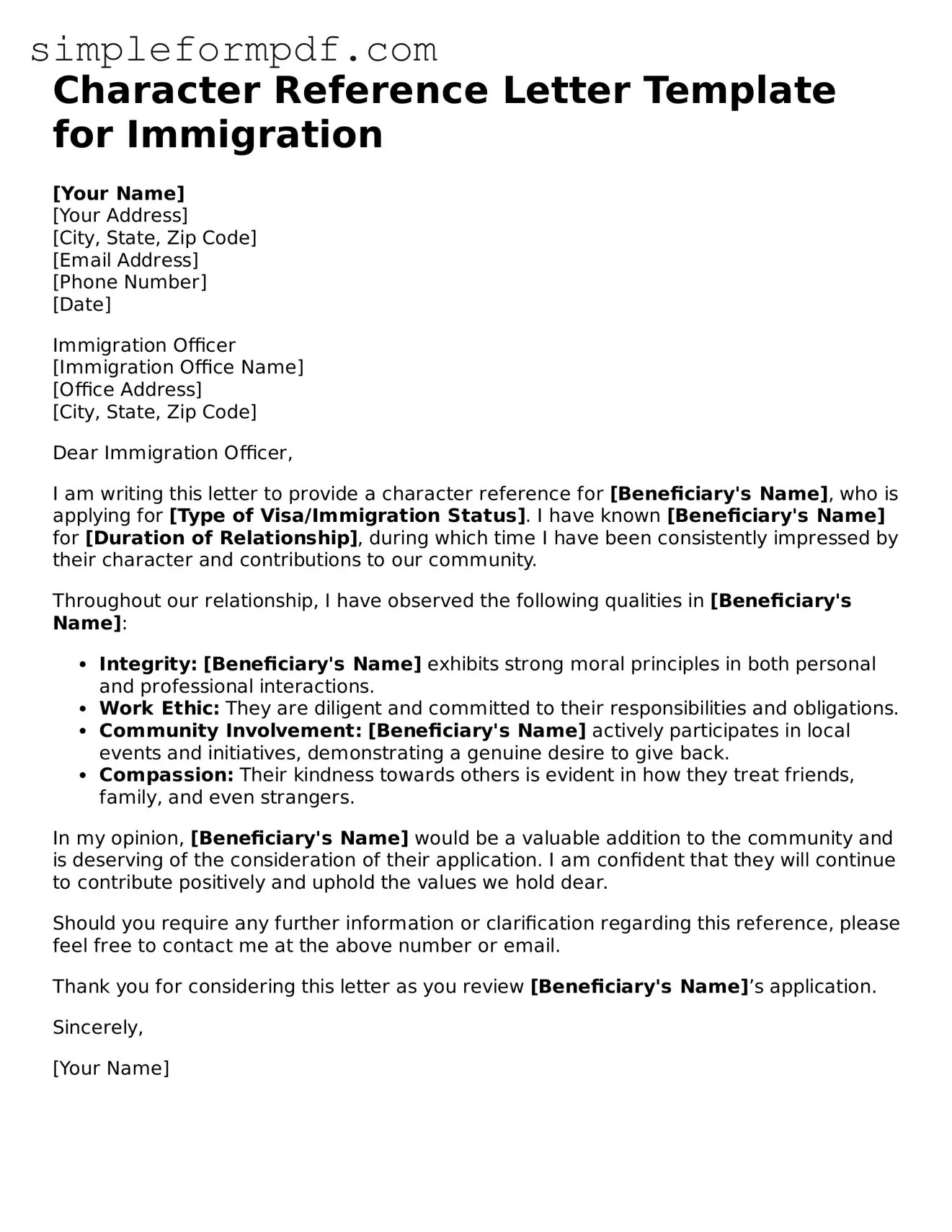Fillable Character Reference Letter for Immigration Template
The Character Reference Letter for Immigration is a crucial document that supports an individual's immigration application by providing personal insights into their character and contributions to the community. This letter is typically written by someone who knows the applicant well, such as a friend, employer, or community leader. If you’re ready to support your application, fill out the form by clicking the button below.
Launch Editor

Fillable Character Reference Letter for Immigration Template
Launch Editor
Need instant form completion?
Finish Character Reference Letter for Immigration online in just a few minutes.
Launch Editor
or
Download PDF
